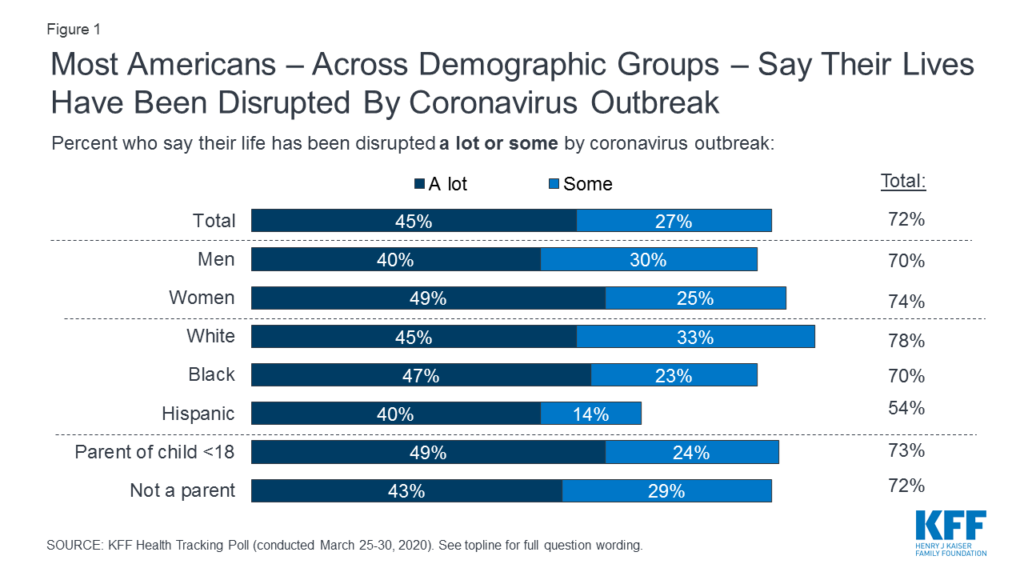 Nearly 3 in 4 Americans see their lives disrupted by the coronavirus pandemic, according to the early April Kaiser Family Foundation Health Tracking Poll.
Nearly 3 in 4 Americans see their lives disrupted by the coronavirus pandemic, according to the early April Kaiser Family Foundation Health Tracking Poll.
This feeling holds true across most demographic factors: among both parents and people without children; men and women alike; white folks as well as people of color (although fewer people identifying as Hispanic, still a majority).
There are partisan differences, however, in terms of who perceives a life-disruption due to COVID-19: 76% of Democrats believe this, 72% of Independents, and 70% of Republicans.
Interestingly, only 30% of Republicans felt this way in March 2020, more than doubling to 70% as of early April 2020 more closely reflecting Democrats’ and Independents’ views on life-disrupted.
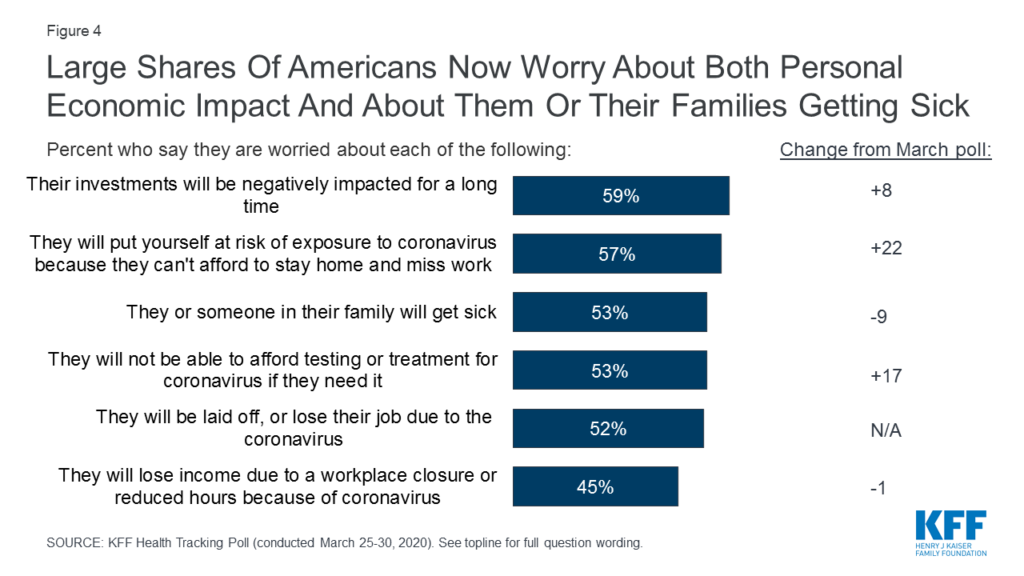 Most Americans worry about both the personal clinical impact and the financial effect of the coronavirus, shown in the second chart.
Most Americans worry about both the personal clinical impact and the financial effect of the coronavirus, shown in the second chart.
Nearly 6 in 10 Americans worry about their investments being negatively impacted for a “long time,” as well as their being at risk of exposure because they can’t say home and miss work.
One-half of Americans are concerned they or a family member would get sick due to the coronavirus, or not be able to afford getting tested.
One-half of Americans are also worried about being laid off, losing a job, or losing income due to work closure or having reduced hours.
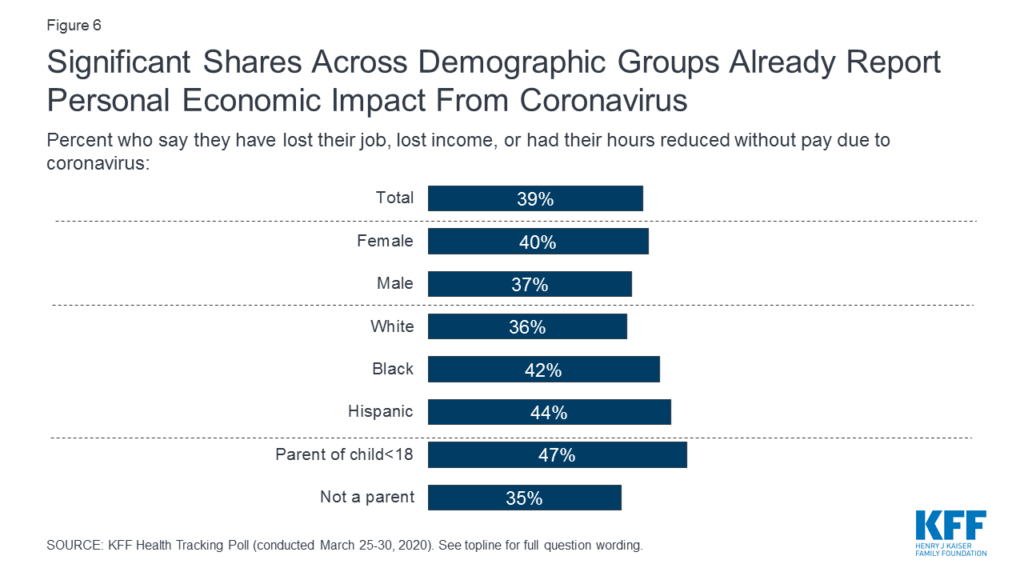
As of the time of this survey in early April, 4 in 10 people had already lost a job or lost income due to COVID-19’s direct impact on employers.
Across demographics, job and income loss seems to be fairly equal opportunity across men and women, but adversely impacting more black people than white people, and parents of young children under 18 versus people without any kids.
Health Populi’s Hot Points: Beyond their personal finances, 8 in 10 Americans worry about the economic impact of COVID-19 on the overall nation’s economy and local businesses.
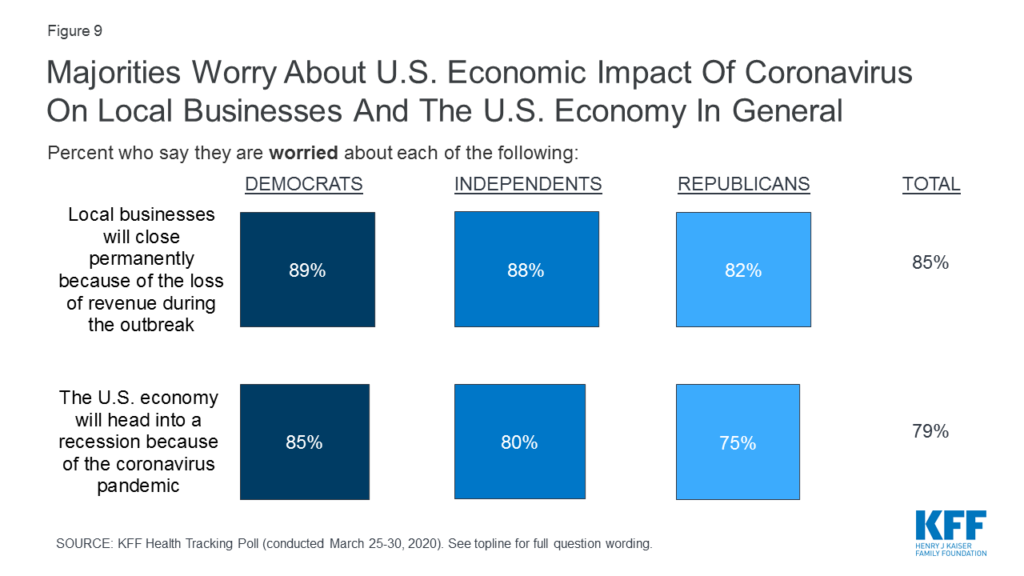 This is something most Democrats, Independents and Republicans agree with in large majority numbers, shown in the last chart.
This is something most Democrats, Independents and Republicans agree with in large majority numbers, shown in the last chart.
The jobs report quantifying the first wave of job losses was published on 3rd April , raising the number of unemployed Americans by 10 million people.
This was the largest single job-loss statistic in the U.S. ever recorded.
Not only is the COVID-19 era ushering in the largest single mass behavior change we’ve ever seen on a global and national basis, but the hit on peoples’ jobs and financial health is also a common experience impacting millions of Americans in this second quarter of 2020.
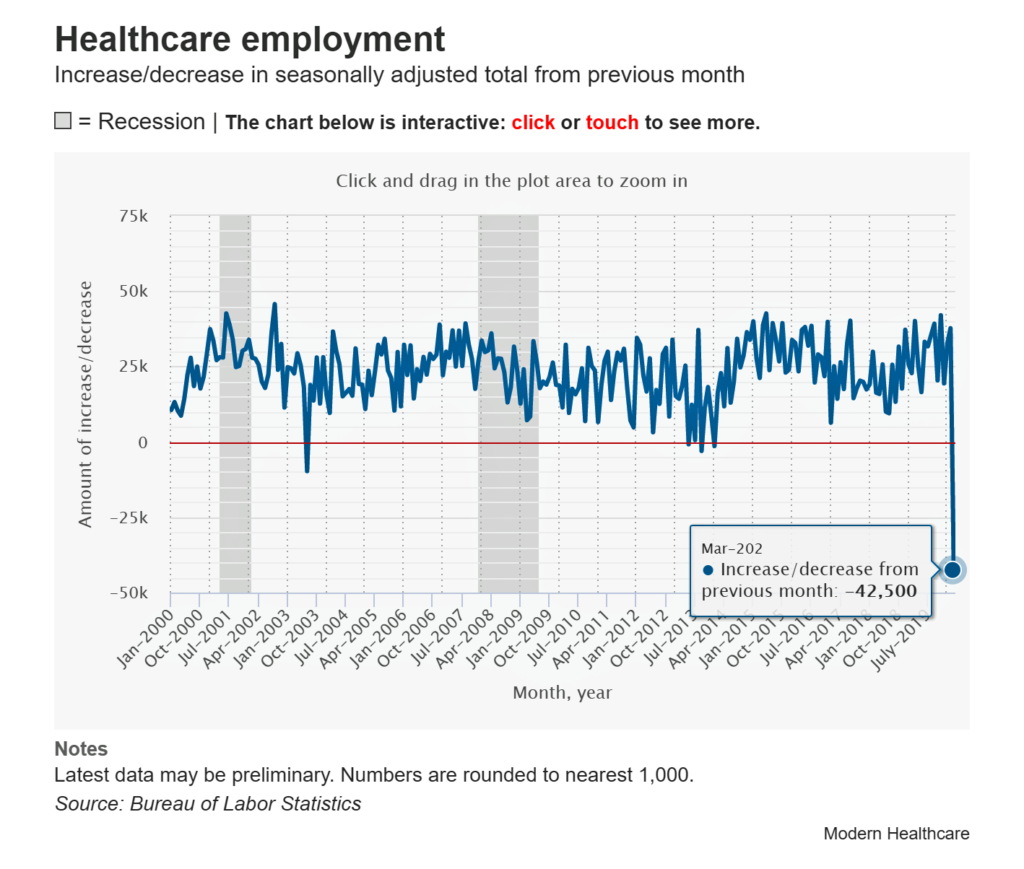 Ironically, surprisingly perhaps, health care job losses were the second largest job type hit by the C19 pandemic after hospitality and leisure time industry workers. Over 61,000 health care jobs were lost in March 2020; 459,000 jobs in leisure and hospitality were lost, followed by 52,000 workers in professional and business services and 46,00+ in retail trade, among other categories.
Ironically, surprisingly perhaps, health care job losses were the second largest job type hit by the C19 pandemic after hospitality and leisure time industry workers. Over 61,000 health care jobs were lost in March 2020; 459,000 jobs in leisure and hospitality were lost, followed by 52,000 workers in professional and business services and 46,00+ in retail trade, among other categories.
In Part 2 of this story in tomorrow’s Health Populi blog, I’ll mine the Kaiser Family Foundation health tracking poll to explore how Americans are feeling about the COVID-19 pandemic’s impact on our mental health…and circle back to how our personal economics impact our health economies and overall health and mental wellbeing.
Spoiler alert: the word depression may come to have two meanings in the coming months.


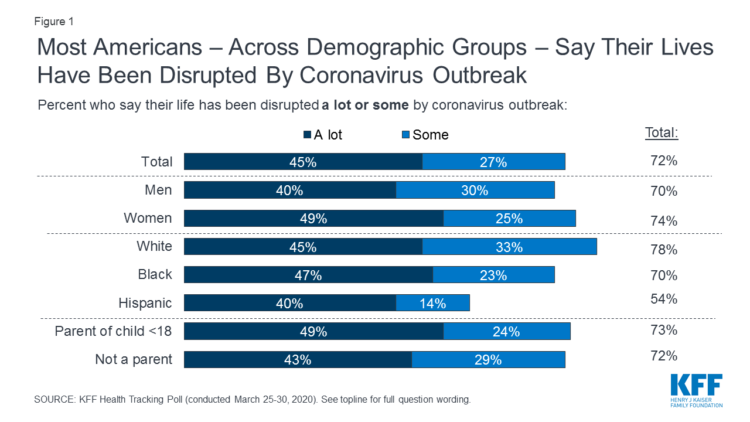


 Thank you FeedSpot for
Thank you FeedSpot for